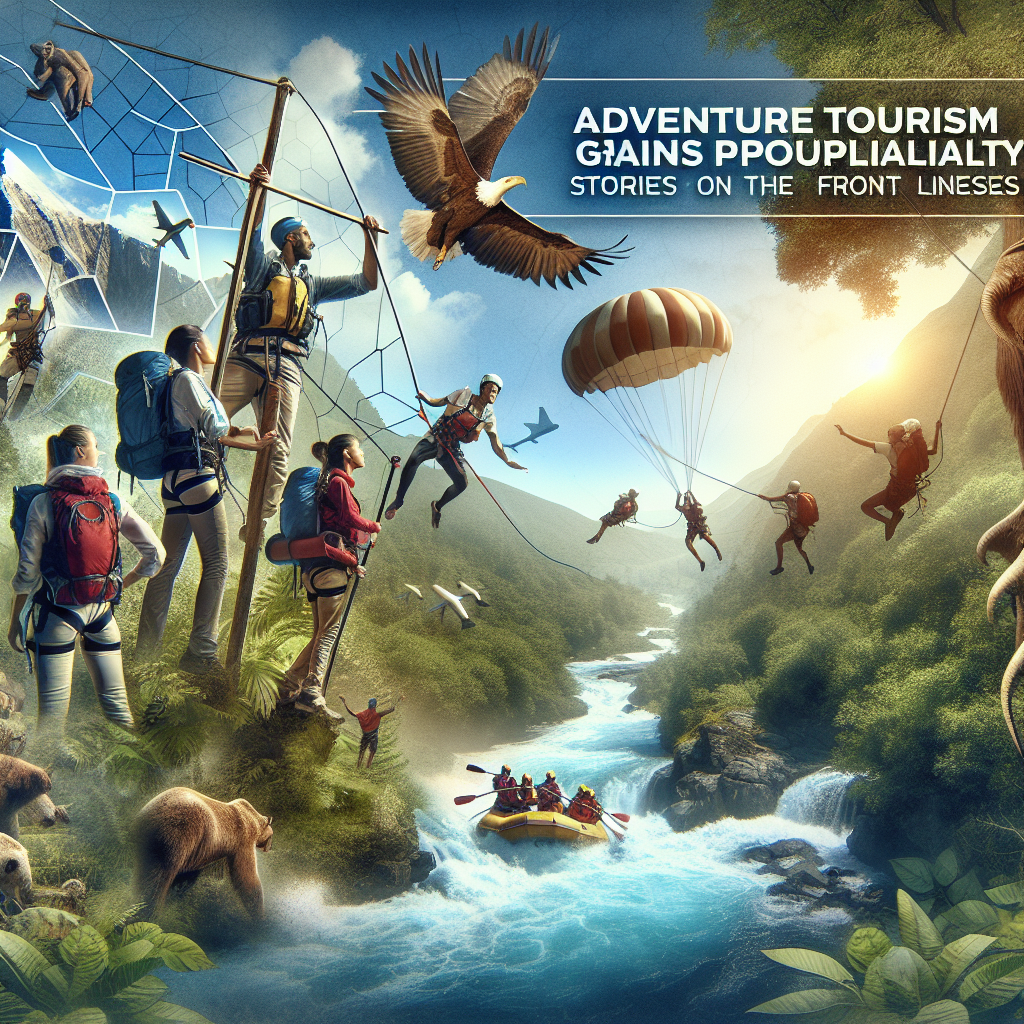Breaking News! A development that’s shaking up the touristic landscape. In an era where seeking unique experiences is outshining materialistic tendencies, one trend is starting to make waves – Adventure Tourism.
I can’t help but acknowledge my fascination for it. This adrenaline-pumping alternative to traditional vacations presents a refreshing antidote to our increasingly sedentary lives.
A recent study by the Adventure Travel Trade Association revealed that interest in adventure tourism has surged by nearly an astonishing 65% in the past year alone. Fuelled by a thirst for unchartered territories and unique experiences, more people now prefer scaling mountains over sprawling on a beach towel.

Some may argue that this form of tourism poses unnecessary risk or even encourages reckless behavior. However, evidence suggests quite contrary. Data show that adventures significantly contribute to personal growth and mental agility while reducing stress levels.
In real-world examples abound: consider Sarah Davis, who navigated Egypt’s Nile River solo; Ben Lecomte who swam across the Pacific; or Jessica Nabongo, becoming the first black woman visiting every country worldwide—an obvious testament to growing desire for extreme quests exemplifying human perseverance.
This trend isn’t without historical precedent either. Sir Edmund Hillary and Tenzing Norgay’s successful Everest summit in 1953 ignited global interest towards high-risk exploration; today’s adventurers build upon these foundations but with contemporary environmental conscience at heart.
Speaking from experience as someone perpetually bitten by travel bug mixed with love for adrenaline surge—I’ve felt enriched with every hike, dive or bungee jump. The highs and lows—physical and emotional—the foreign landscapes, the resilience required, they all fuel growth in ways far surpassing ‘usual’ vacations.
It’s a clarion call to tourism industry—to shift focus from crowded hotspots towards sustainable adventure activities; to fight overtourism while offering responsible yet thrilling alternatives.
I envision a future where travel isn’t merely about checking iconic buildings off a list but stepping out of comfort zones—forging deeper connections with unfamiliar environments and cultures—a world entranced by experiences rather than possessions.
In closing thoughts, adventure tourism’s rise doesn’t come as surprise—it’s an inevitable response against our increasingly insular digital lives—a testament to innate human desire for exploration. The once alternative form of vacation has gradually become mainstream—and rightly so—as it offers not just escapism but also rejuvenation unlike any other.

